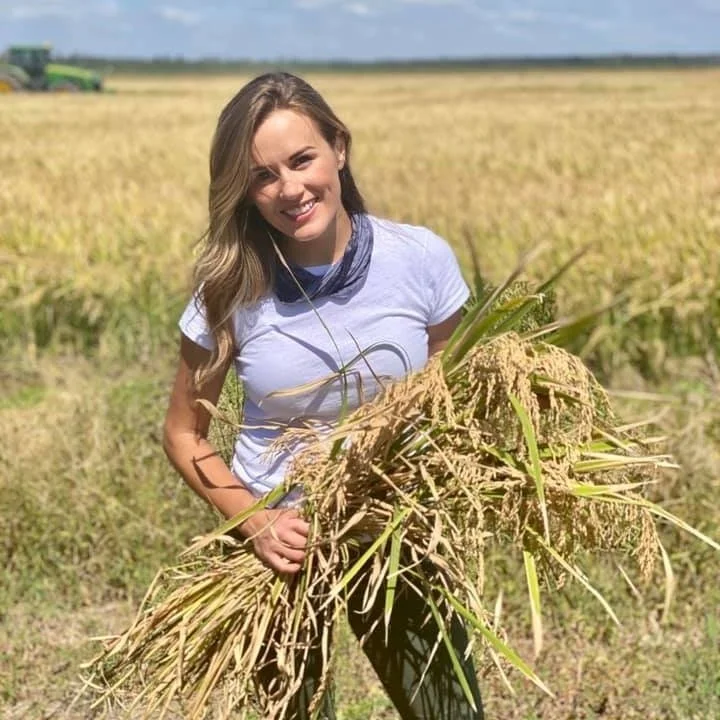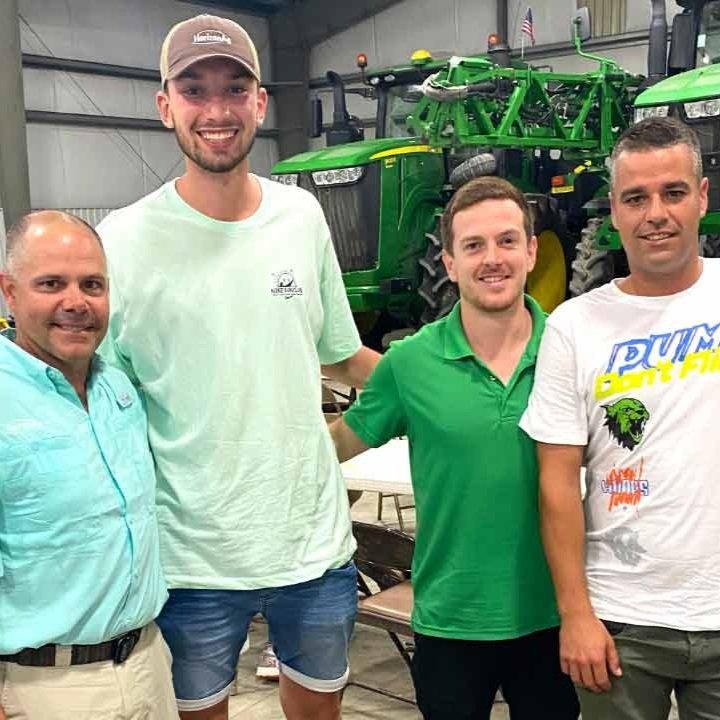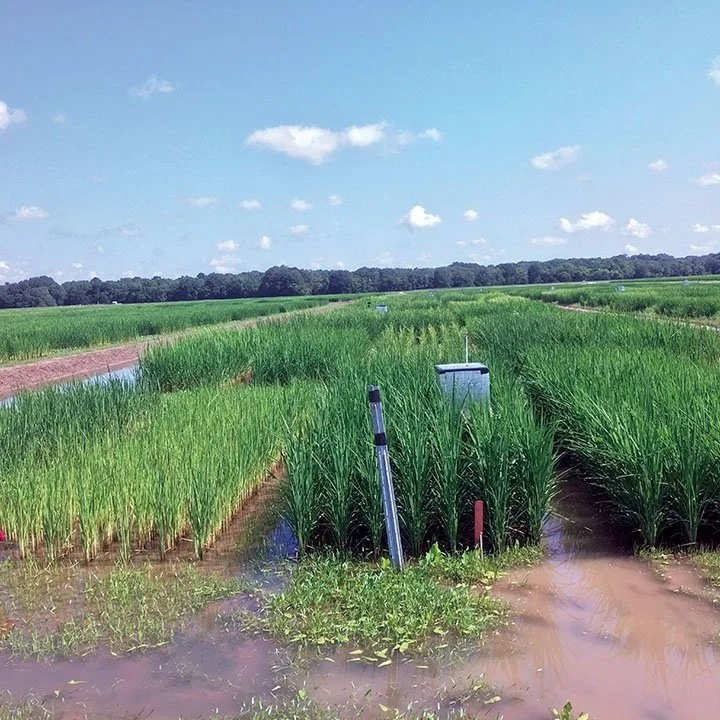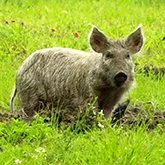Last month the USA Rice Millers Association elected Louisiana’s Meryl Kennedy-Farr, CEO of Kennedy Rice in Mer Rouge, to succeed Keith Glover as chair of that organization. Kennedy-Farr becomes the first woman and the youngest person ever to chair that organization in its 123-year history.
Read MoreIndustry experts and supporters came together recently at the annual Horizon Ag Louisiana Field Day to discuss the promise and challenges of growing rice in 2022 and beyond.
Read MoreTo retain the personnel and resources required to continue the rich history of rice variety development at the H. Rouse Caffey Rice Research Station, the Louisiana Rice Research Board opted to expand its endowment offerings.
At its semiannual meeting on June 30, the board agreed to establish a new endowed chair specifically for the LSU AgCenter’s rice breeding program at the Rice Research Station.
Read MoreThe Rice Leadership Development Program gives future leaders a comprehensive understanding of the rice industry, with an emphasis on personal development and communication skills. The program has been in existence for more than 30 years and most of the current leaders of the U.S. rice industry are alumni.
Read MoreUSA Rice released the annual U.S. Rice Domestic Usage Report (DUR) today, tracking domestic shipments and consumption of U.S. milled rice from August 2020 through July 2021.
Read MoreHarvest will begin soon in South Louisiana and the western rice belt of Texas. I expect the first fields to be harvested within the next week to 10 days in both regions. A few fields in the Beaumont area will not be much behind that schedule, but the majority of the crop in that area is now beginning to head.
Read MoreWeed scientists with the LSU AgCenter are focusing on a pair of herbicides as promising products to control broadleaf weeds and sedge in rice fields.
AgCenter research associate Connor Webster said the two products, Loyant and Gambit, are known for their broad-spectrum weed control characteristics.
Read MoreIn early 2022, Nan Wallis and Lindsey Beard opened up a brewery in New Orleans. Though, they aren’t brewing beer. They are two women who are using Louisiana rice and Japanese tradition, to make New Orleans Sake. Wetlands Sake is open and ready for thirsty patrons.
Read MoreRice farmers, researchers, wildlife specialists, and others gathered here last Wednesday at the oldest and largest rice research station in the country to learn about the important research being undertaken in breeding, agronomy, weed science, etymology, agronomics, and more.
Read MoreLast week, the Louisiana Farm Bureau (LAFB) gathered for their annual convention in New Orleans, celebrating the organization’s 100th anniversary, a milestone as notable as the program itself.
The LAFB Rice Advisory Board meeting was led by Chair Allen McLain, with a full agenda of speakers presenting on topics from every aspect of the Louisiana and U.S. rice industry.
The development of improved rice varieties has been a primary goal of the LSU AgCenter H. Rouse Caffey Rice Research Station over the past 100 years. The research station has released more than 50 new varieties, and approximately 70% of Louisiana’s rice acreage is grown with the varieties developed by the AgCenter.
Read MoreIn 2022, the H. Rouse Caffey Rice Research Station Rice Breeding Program has advanced three rice varieties that will soon be commercially available for Gulf Coast producers to add to their repertoires.
Read MoreLSU AgCenter rice researchers are once again inviting producers and industry professionals to the H. Rouse Caffey Rice Research Station for its annual field day to be held here on Wednesday, June 29.
Read MoreThe LSU AgCenter Rice Verification Program is in its 25th year of interpreting research data from the H. Rouse Caffey Rice Research Station and applying it to rice growing locations throughout the state.
Read MoreThe U.S. Department of Agriculture (USDA) National Agricultural Statistics Service in cooperation with the USDA Animal and Plant Health Inspection Service (APHIS) - Wildlife Services, is conducting a Feral Swine Damage survey to measure the costs of feral swine damage to crop producers growing corn, soybeans, wheat, rice, peanuts, and sorghum in the states of Alabama, Arkansas, California, Florida, Georgia, Louisiana, Mississippi, Missouri, North Carolina, South Carolina, and Texas.
Read More














